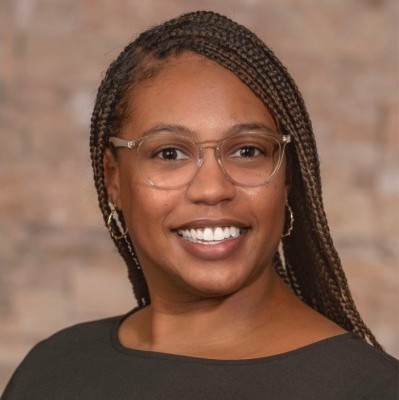Tyrena Lester serves as the Victim Services Supervisor at the Baystate Family Advocacy Center (BFAC), a nationally accredited CAC. There, she oversees all case management, forensic interviews, and multidisciplinary response to child abuse in the county.
“I got my start in the field as a teenager. We would teach people about safe sex, safer sex, and healthy relationships,” Lester said, “I’ve always really been in the field to help people. It was my calling.”
One of the cornerstones of Lester’s work is the One Mission Program. The One Mission Program increases access to and coordination of trauma-informed services for individuals through age 25 who are at high risk or victims of commercial sexual exploitation or trafficking (CSE/T).
“Prior to 2012, the exploitation of children wasn’t really looked at as child abuse,” Lester explained. “Massachusetts has really pushed for making sure we have included CSE/T as child abuse. We coordinate and provide resources and services for children and their caregivers.”
The One Mission Program is about supporting victims so they feel empowered to make safe choices for themselves. Some of the services the program provides include emotional support, safety planning, social service advocacy, court support, and follow-up support to victims and families.
“Some of the people who are exploited have a lot of risk factors, and those risk factors make them more vulnerable,” Lester said. “Our county gets about 100 to 120 reports a year. I believe that number is underreported. I would suspect that it’s around 150.”
Lester also oversees the Homicide Bereavement Program, which connects individuals and families impacted by homicide and vehicular homicide with survivors.
“[The program] is unique, and it gives people a space to process their grief,” Lester said. “Loss is hard by itself. To lose someone in such a way that is so traumatic as murder or homicide adds a different layer. We offer therapy and community events. We have a peace and remembrance event for people to remember their loved ones, and we have a victim rights conference every year. We also have survivor-driven activities like a walk in the park, paint night, etc.”
Additional services include individual and group therapy, community outreach and advocacy, court support, and help applying for victim compensation.
Lester also works within trauma-informed practices for multidisciplinary training (MDT), which helps organizational staff and care teams learn and implement the core principles of a trauma-informed approach. The goal is to improve client engagement and outcomes, reduce health disparities, increase staff wellness, and reduce burnout.
“Trauma is complex, and we as providers need to be able to recognize how our clients are showing up,” Lester said. People of various races, genders, and cultures haven’t always had the best experience in our systems.
“We need to recognize that our systems can be traumatizing. Sometimes trying to keep your family safe and dealing with the system doesn’t align the way we want it to. Understanding that from a provider’s perspective can really help. How can we support you better?”
Lester added, “A trauma-informed approach is about taking all of those variables and vulnerabilities and seeing who they are all where they’re at. As a family comes in, they meet with a member of the team and go through our needs assessments. We discuss anything that could become a barrier going forward: Transportation, food, religion, etc. We ask about how you’re taking care of yourself? Do you have a caregiver? Do you have your own support?
We make informed decisions about what the best resources are for the family collectively.”
Lester is also interested in learning more about the National Children’s Alliance’s new standards for diversity, equity, and access.
“92% of the executive directors are white,” Lester said. “I think about what that must mean for victims. We can be trauma-informed, but that’s not the same as acknowledging. I think about that a lot. When talking about the future, we should be addressing that.”
